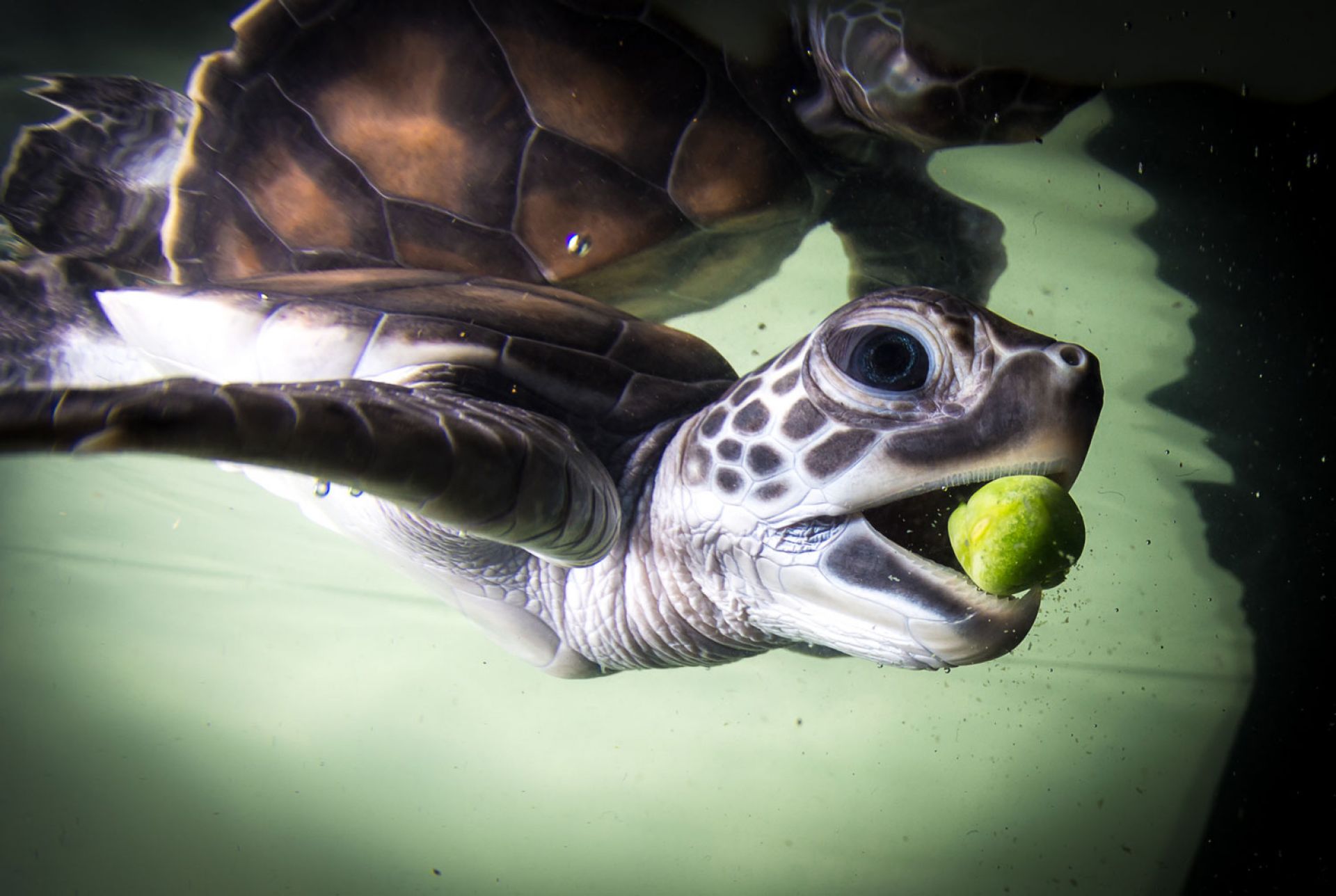Media Releases
“Poopcorn” helps uncover plastic risk to turtles

James Cook University PhD student Daniel González Paredes is researching what happens to marine turtles when they eat plastic – by studying how they poop corn.
Mr González Paredes said although it’s well known that turtles can die from eating plastic, we need to have a better understanding of what the plastic is doing to the turtles.
“I wanted to understand how long it takes for a piece of plastic to pass through a turtle’s entire digestive system,” he said. “This will give us a better understanding of the mechanisms and factors involved in the threat of eating plastic, including partial or total obstruction of the digestive system.”
To test this, Mr González Paredes fed corn kernels to juvenile green turtles at The Caraplace, JCU’s turtle health research facility, and collected their faeces to check how long it took the corn to pass.
“Green turtles love corn, just like other common veggies, but don’t digest it,” he said. “This makes for a simple way to investigate how long it takes non-digestible matter, such as plastic, to pass through their digestive system by using organic matter that doesn’t hurt the turtles.
“So, we called the trial ‘poopcorn’.”
The poo was collected twice a day and washed out, so they could check for the presence of corn and count how many kernels came out of the turtle each day.
“Our results show that food can take between one and three weeks to pass through the digestive system of a juvenile green turtle,” Mr González Paredes said. “This means that for plastic, there’s a period of up to three weeks where it can become obstructed and cause damage to the turtle’s gut.
“On top of that, the characteristics of the plastic piece itself, such as size, sharpness or even the rate of ingestion, are additional factors that can affect the turtles in different ways.”
He said we need to think critically about what our plastic consumption is doing to the natural world.
“Plastic pollution is considered to be one of the main threats to the marine environment,” he said. “Assessing the impacts plastic has on turtles is crucial for the preservation of the species as it allows us to design efficient mitigation action and conservation plans.”
Daniel González Paredes